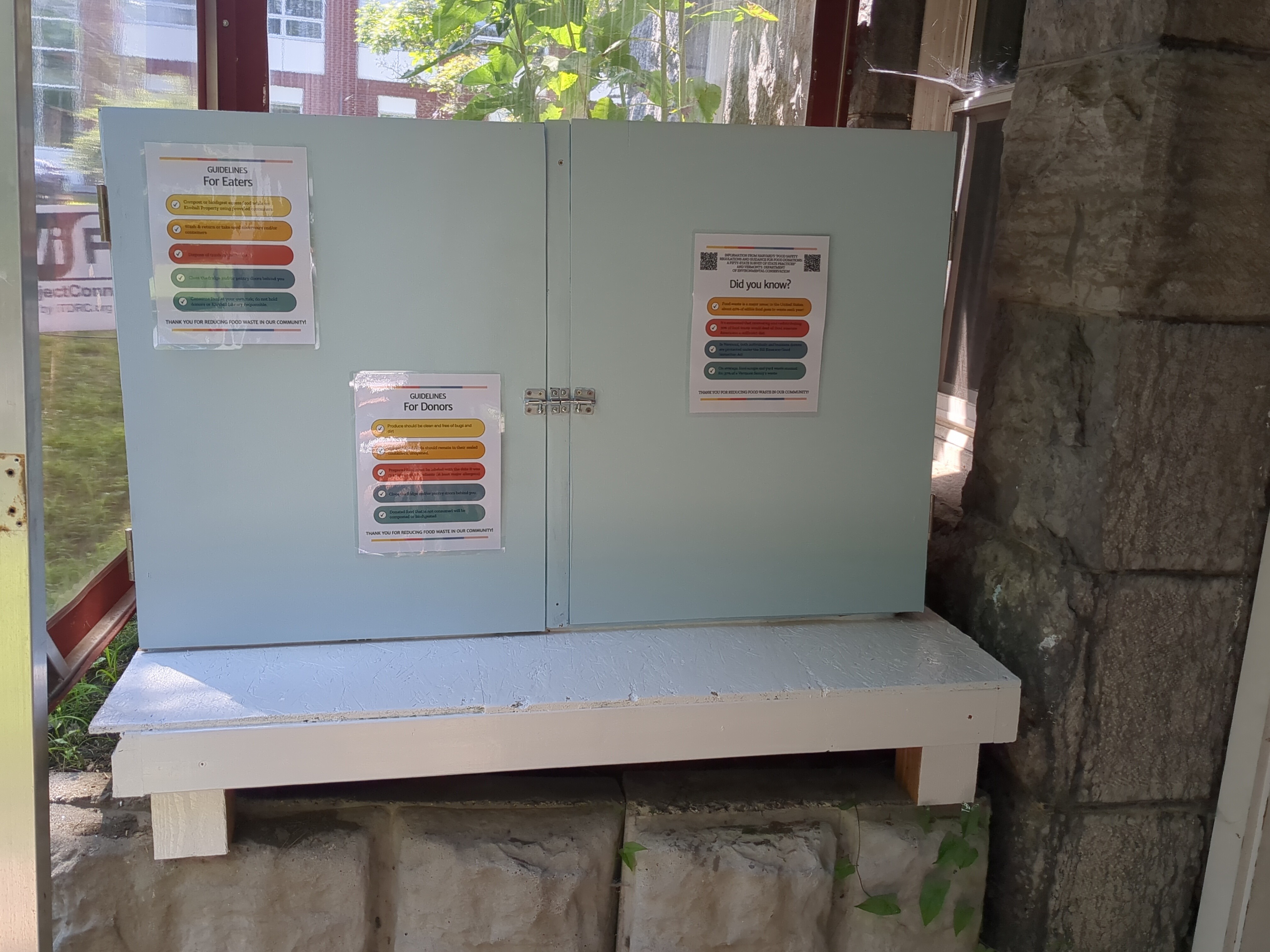Community Fridge and Pantry

We are pleased to offer a 24/7 access fridge and pantry located under Kimball Library's Awning (side entrance). This is available to anyone regardless of location, residency status, age, or any other factors.
Eaters
All food is available to eat at your discretion. We offer grocery bags and silverware for eaters to use when available. Please ensure that the fridge and pantry doors are closed when not in use to prevent pests. Please clean up after yourself, including discarding food waste into the biodigester (green cone) located outside the library, cleaning silverware or containers you intend to return, throwing trash and recycling into provided trash and recycling bins, and ensuring the fridge and pantry stay clean.
Donors
All food determined to be edible is accepted as donations. Packaged food is accepted in unopened packaging. Prepared food is welcome from businesses, organizations, and individuals alike, and is covered under the Bill Emerson Good Samaritan Food Donation Act and Vermont’s Good Samaritan Law for Donations of Food. Fresh produce is welcome, and needs to be washed before being placed in the fridge.
Kimball Library asks that you label all prepared food with the date it was made as well as any of the following nine top allergens:
- dairy (milk, yogurt, cheese, sour cream, butter, etc.)
- eggs
- fish
- shellfish (shrimp, prawns, crab, lobster, etc.)
- treenuts (almonds, brazil nuts, cashews, hazelnuts, macadamias, pecans, pistachios, pine nuts, walnuts, etc.)
- peanuts
- wheat
- soybeans (tofu, edamame, tempeh, etc.)
- sesame
For more information about allergens, please visit the FDA's food allergen page.
Conception and execution of the
Community Fridge and Pantry
The Community Fridge and Pantry developed through a series of conversations from Randolph area community youth made possible with funding from the American Library Association's Accessible Small and Rural Communities Grant. Youth were asked to discuss the question, "What would make Randolph more accessible and improve mental health?" Participants came up with a large body of ideas to improve our community space, and from those ideas, youth and library staff determined that installing a 24/7 Community Fridge and Pantry would provide greater access to food that would reduce stressors and improve accessibility and mental health for community members.
Kimball Library partnered with RU students through a Food Project Based Learning class to design a shelf space for food. We look forward to partnering with businesses and organizations to accept food donations, and redistribute food to the Randolph Area Food Shelf when we receive a surplus.
Reducing Food Waste in our Community
Food waste is a major issue in the United States. Each year about 40% of edible food goes to waste. It's estimated that recovering and redistributing 30% of food waste would feed all food insecure Americans a sufficient diet. On average, food scraps and yard waste account for 30% of a Vermont family's waste.
By donating your excess food while it is still edible, you can reduce your food waste and help our community access needed food. In Vermont, individuals, businesses, and organizations are all covered under the Bill Emerson Good Samaritan Food Donation Act and Vermont’s Good Samaritan Law for Donations of Food. So you can donate with the peace of mind that your donations are helping our community reduce our food waste!
Statistics from Harvard's Food Safety Regulations & Guidance for Food Donations: A Fifty-State Survey of State Practices; March 2018 and Vermont's Department of Environmental Conservation website.